5. To Russia with Reason.
Catherine the Great of Russia, Frederick the Great of Prussia, Joseph II of Austria: all grew up speaking French, all studied the
French philosophes, and all used their absolute power to enact reforms for the benefit of their people. They are often cited
as the prime examples of the 18th-century Enlightened Despot, a concept we owe to Voltaire. Although born in the preceding
century and establishing contact with France relatively late in life, Peter the Great of Russia also showed many of the same traits.
The “French Connections” in this class are thus forged through ideas rather than events or people. Though people are involved too:
Frederick invited Voltaire to Potsdam and protected Rousseau; Catherine corresponded with Voltaire for years and hosted Diderot;
Frederick made music with two Bachs, father and son; Joseph supported Mozart; and Catherine sheltered Élisabeth Vigée Lebrun, Marie
Antoinette’s favorite painter, after she fled the Revolution. And all of them built palaces. rb.
The script, videos, and images will be posted immediately after class.
Q AND A
What is the etymology of the word "Encyclopedia"?
You have probably looked this up for yourselves by now, and in the same source, Wikipedia. But yes, the word comes from
Greek, as I thought. It was originally a two-word phrase, meaning "comprehensive knowledge," later mistranscribed as a
single word that stuck.
Was the Diderot/d'Alembert Encyclopédie the first?
Pretty much, yes. The Wikipedia "Encyclopedia" article gives several earlier parallels, some even from classical times. The
English book that the French originally undertook to reissue was the Cyclopaedia, or an Universal Dictionary of Arts and
Sciences by Ephraim Chambers (1728). Diderot and d'Alembert not only geatly increased this in size, but they also
increased its scope to include philosophy and the mechanical arts.
VIDEO LINKS
All the clips shown in class are available on YouTube in some form. The Eugene Onegin film and the two Lucy Worsley
documentaries are in fact complete, though cued to the portions we watched in class. However, the Amadeus clip shows the
opera portion only, and omits the footage where Joseph II comes onto the stage. rb.
| |
|
|
|
|
|
| IMAGES |
The thumbnails below cover the slides shown in class, though
there may be a few small discrepancies. Click the thumbnail to see a larger image.
Click on the right
or left of the larger picture to go forward or back, or outside it to close. |
 | |
 | |
 | |
 | |
 | |
 | |
 | |
 | |
 | |
 | |
 | |
 | |
 | |
 | |
 | |
 | |
 | |
 | |
 | |
 | |
 | |
 | |
 | |
 | |
 | |
 | |
 | |
Here are brief bios of the artists, composers, and writers considered in the class, listed in order of birth.
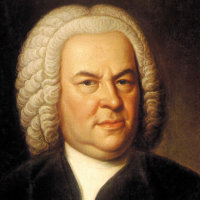 |
Johann Sebastian Bach, 1685–1750. German composer.
The towering genius of German music in the earlier 18th century, Bach was most famous in his time as an organist and choirmaster, most notably at the Thomaskirche in Leipzig. His work includes two Passions, numerous cantatas, and keyboard and orchestral works that codify and extend the possibilities of counterpoint in his time.
|
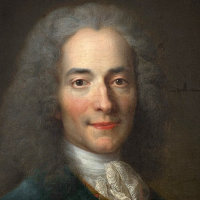 |
Voltaire (François-Marie Arouet), 1694–1778. French Enlightenment writer, historian, and philosopher.
Voltaire was "famous for his wit, his criticism of the Church, and his advocacy of freedom of speech, freedom of religion, and separation of church and state" (Wikipedia). Among his prolific output in almost every literary form, he is now best known for his satirical novel Candide (1758), a critique of the Optimism of Leibniz.
|
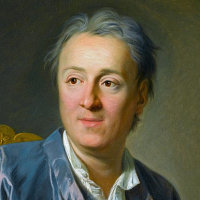 |
Denis Diderot, 1713–84. French philosopher, writer, and critic.
One of the key figures of the Age of Reason, his chief fame is as co-founder (with d'Alembert) and editor of the Encyclopédie, which brought together scientific knowledge and Enlightenment thought.
|
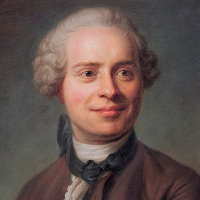 |
Jean-Baptiste le Rond d'Alembert, 1717–83. French polymath.
Alembert "was a French mathematician, mechanician, physicist, philosopher, and music theorist. Until 1759 he was, together with Denis Diderot, a co-editor of the Encyclopédie. D'Alembert's formula for obtaining solutions to the wave equation is named after him. The wave equation is sometimes referred to as d'Alembert's equation, and the fundamental theorem of algebra is named after d'Alembert in French." [preamble to Wikipedia article]
|
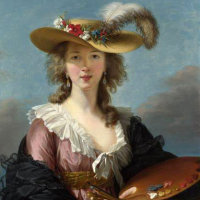 |
Élisabeth Vigée Le Brun, 1755–1842. French painter.
Specializing in portraiture, Vigée-Lebrun had charm and wit to match her talent, which won her many influential patrons, most notably Queen Marie Antoinette. She fled France at the Revolution and lived in London, Italy, Vienna, and St Petersburg, where she was part of the court of Catherine the Great. Her memoirs are a vital testament of her times and her own remarkable strengths as a woman.
|
 |
Wolfgang Amadeus Mozart, 1756–91. Austrian composer.
A child prodigy as both performer and composer, Mozart produced an extraordinary body of work in all genres over a relatively short life. He wrote the greatest of his many operas after moving to Vienna: three collaborations with Lorenzo da Ponte—The Marriage of Figaro (1786), Don Giovanni (1787), and Così fan tutte (1790)—framed by two German Singspiels: The Abduction from the Seraglio (1782) and The Magic Flute (1791).
|
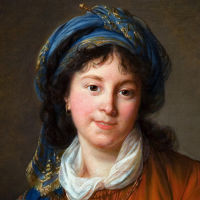 |
Princess Natalia Ivanovna Kourakina, 1766–1831. Russian composer.
Kourakina (née Golovina) became the most prolific Russian composer in the era of Catherine the Great. A singer and harpist herself, she wrote mainly songs for salon performance, but these were published and distributed widely. After her husband quarreled with Tsar Paul I in 1815, she moved to Paris, where she hosted a salon of her own.
|
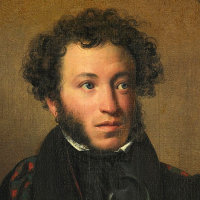 |
Alexander Pushkin, 1799–1837. Russian poet.
While in exile because of verses critical of the Tsar he wrote his most celebrated play Boris Godunov. His masterpiece is the novel in verse Eugene Onegin, serialized between 1825 and 1832. While his range is extraordinary and an inspiration to later Russian composers, he is celebrated as much for restoring the Russian language (as opposed to French) as the vehicle for artistic expression.
|
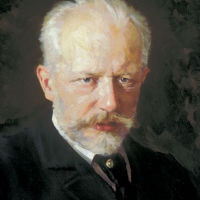 |
Pyotr Ilyich Tchaikovsky, 1840–93. Russian composer.
Tchaikovsky was the first Russian composer to gain an international reputation, in part because his Russian voice was allied to a thorough training in Western parctice. His symphonies, tone-poems, and ballets have become staples of their repertoire, but his dozen operas are less well-known, except for Eugene Onegin (1879) and The Queen of Spades (1890), both based on texts by Pushkin.
|
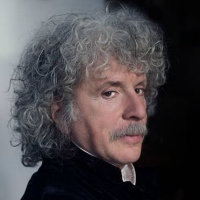 |
Sergei Dreznin, 1955– . Russian musician.
Born and trained in Moscow, Dreznin has lived in Vienna, New York, Paris, and Berlin. He has divided his time between careers as concert pianist and composer. His largest project to date has been the epic musical Catherine the Great (2006).
|





































